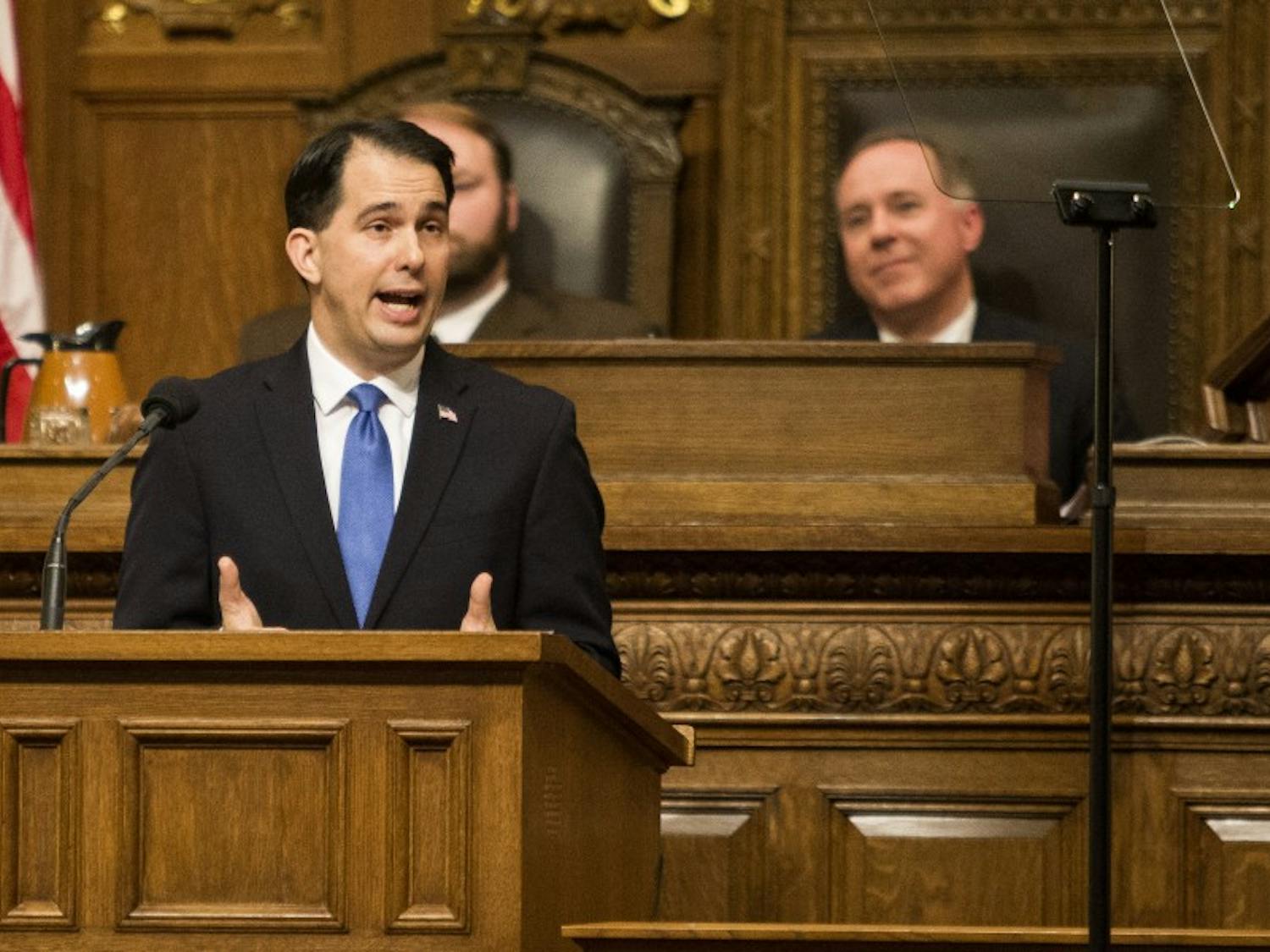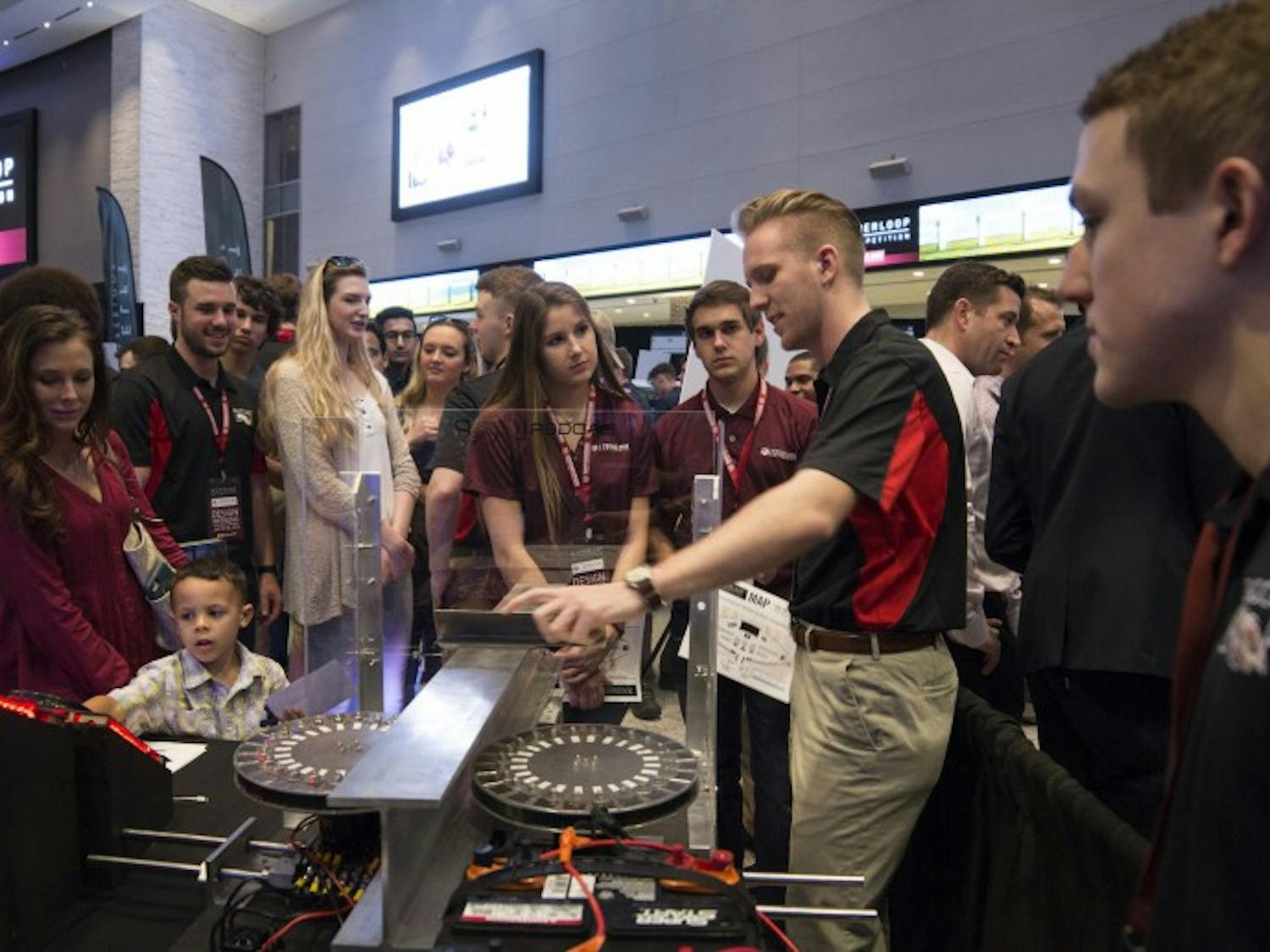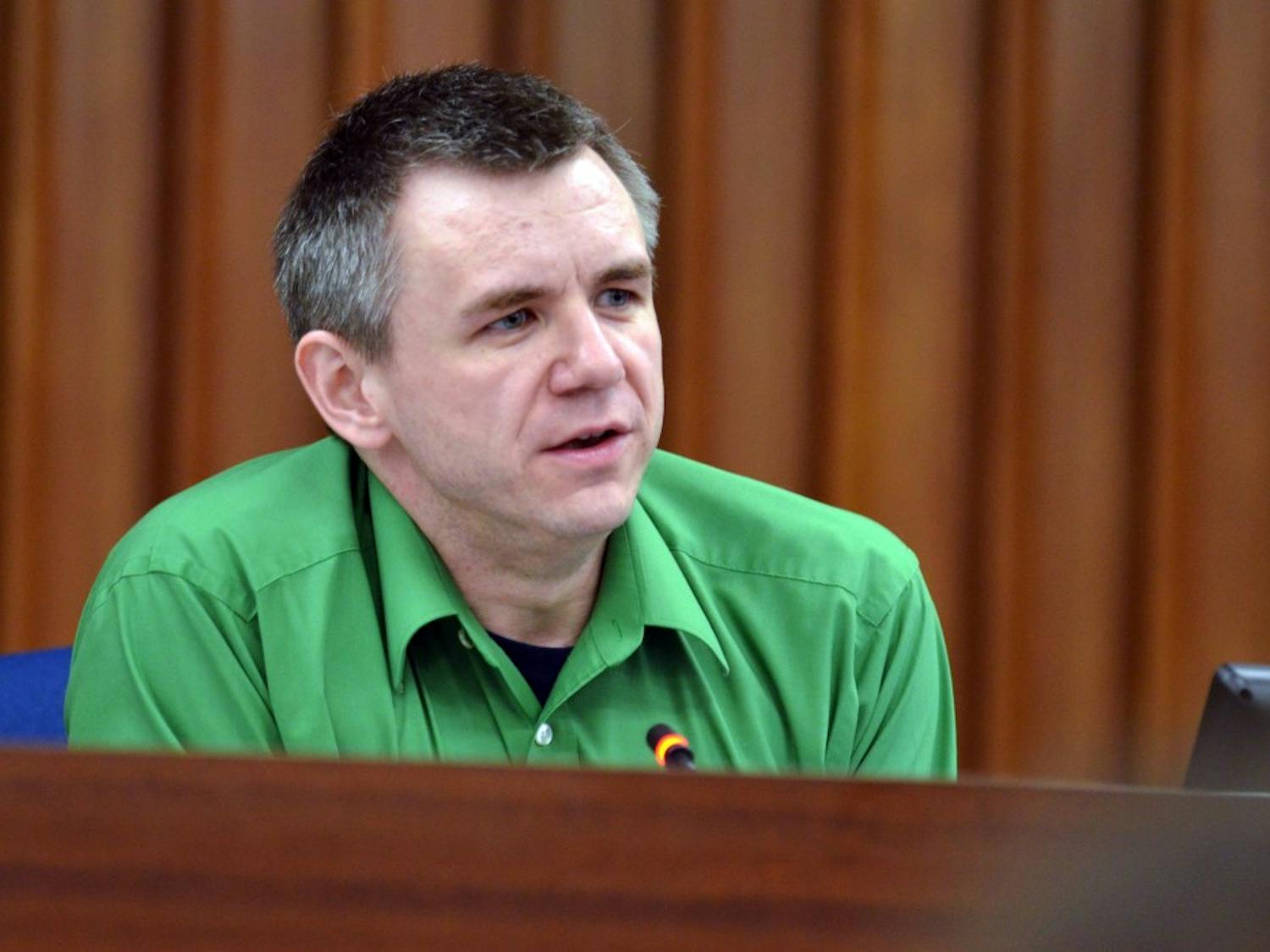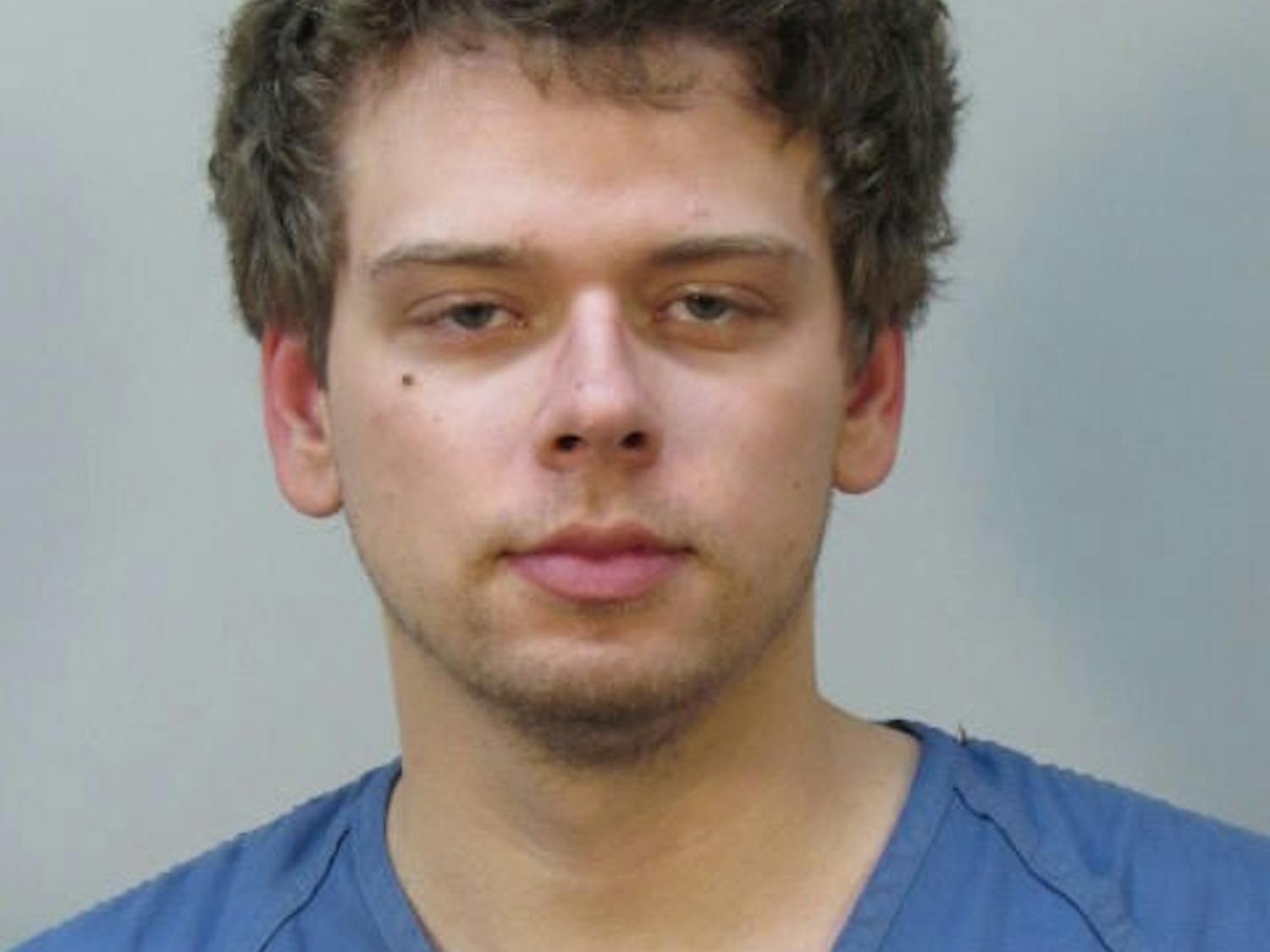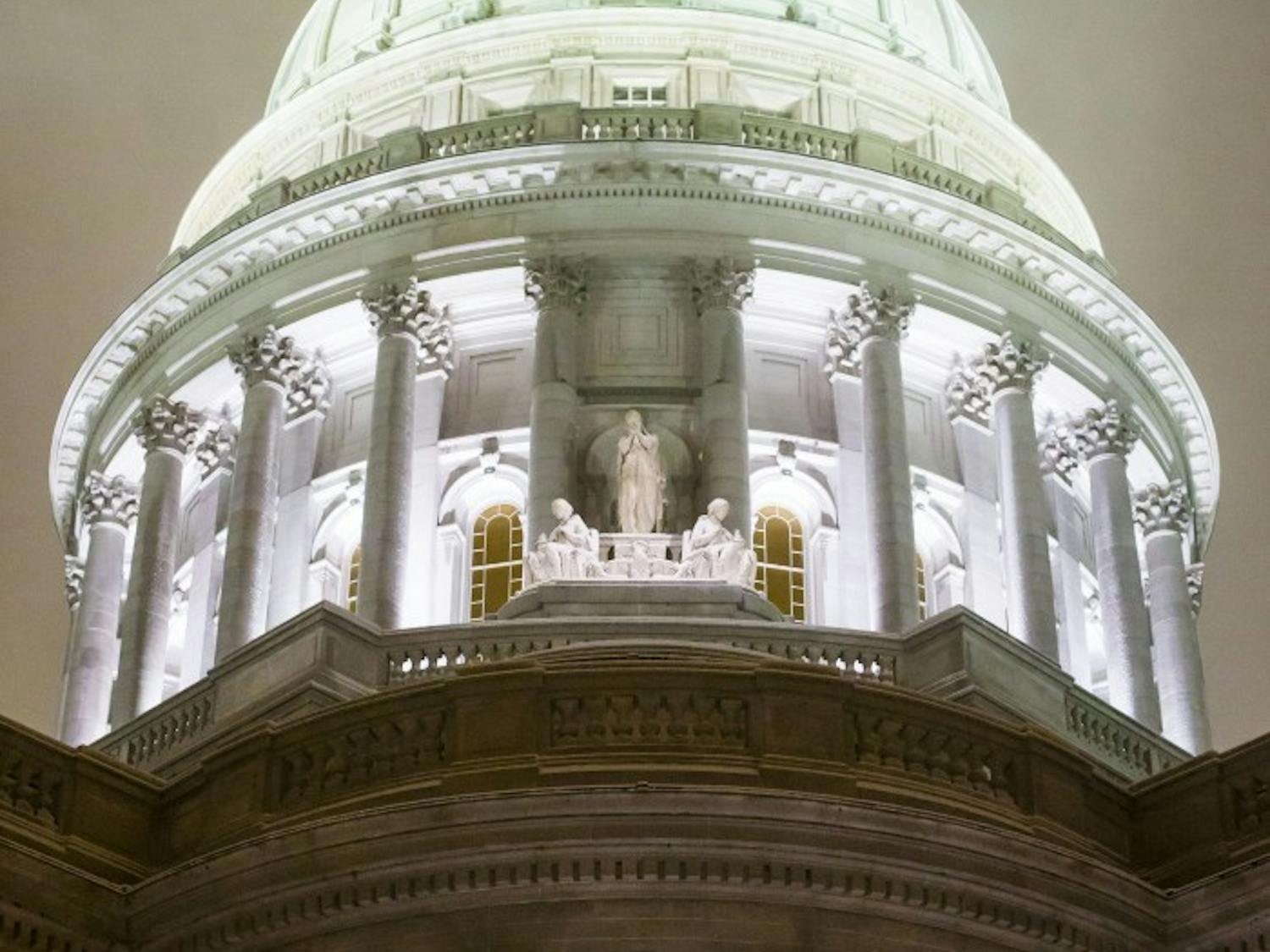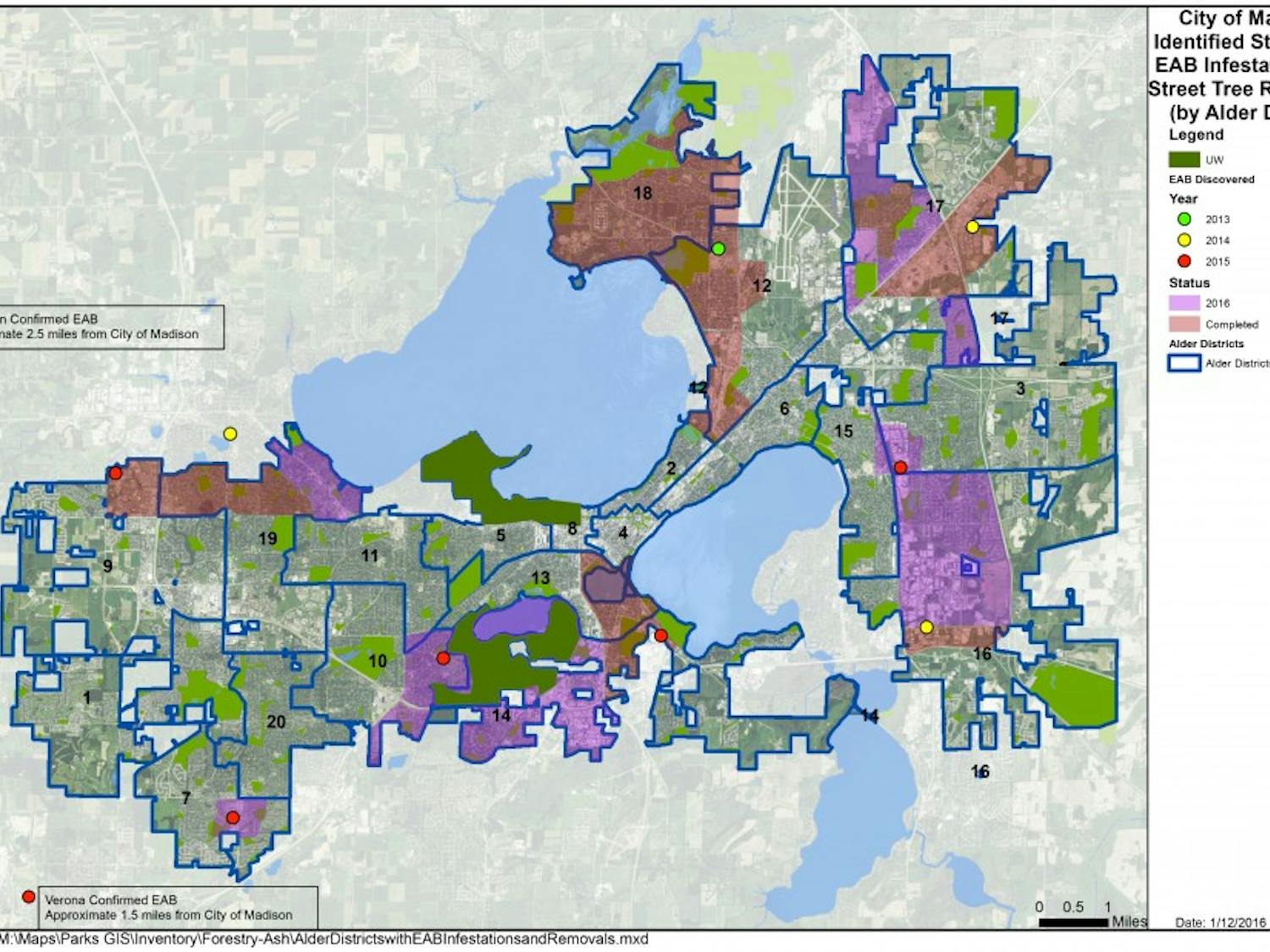Gov. Scott Walker signs host of bills into law
By Ningyuan Ma | Feb. 4, 2016Gov. Scott Walker signed 21 new bills into law Thursday at the state Capitol, covering issues ranging from children in the foster care system, criminal penalties and transportation. The most prominent bill is one allowing hunters to wear blaze pink in addition to traditional colors like hunter orange and blaze orange, authored by state Rep. Nick Milroy, D-South Range, and state Sen. Terry Moulton, R-Chippewa Falls.

